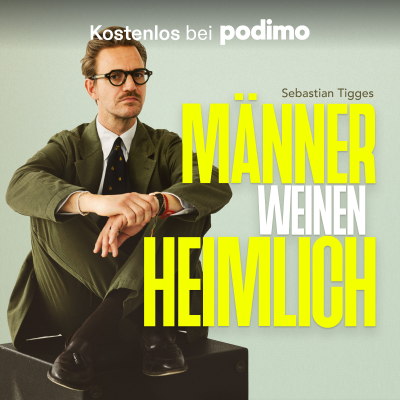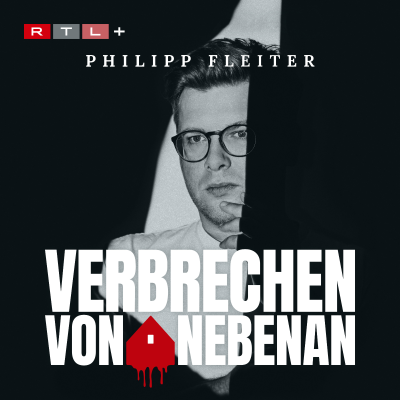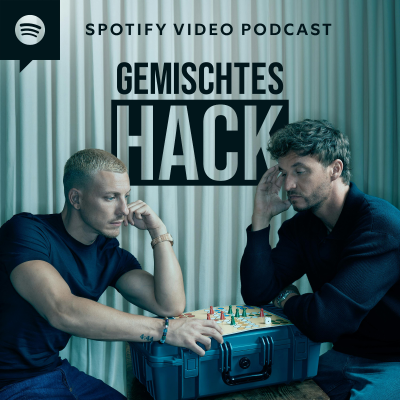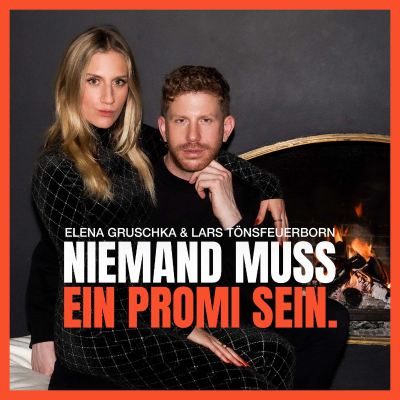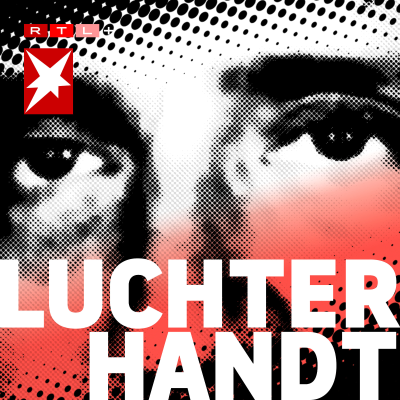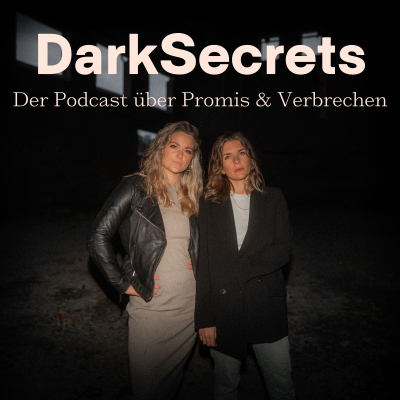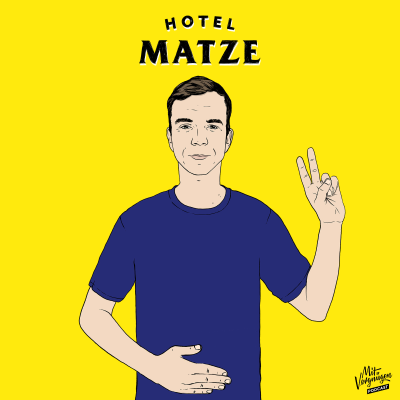
Explaining History
Podcast von Nick Shepley
Nimm diesen Podcast mit

Mehr als 1 Million Hörer*innen
Du wirst Podimo lieben und damit bist du nicht allein
Mit 4,7 Sternen im App Store bewertet
Alle Folgen
796 FolgenContinued from yesterday's episode, we read again from Adam Hochschild's brilliant book Spain in Our Hearts, about the overwhelming odds faced by the International Brigades in Spain as they crossed the Ebro River in the Republic's last attempt to hold off the fascist generals and attract the support of the British and the French. The agreement at Munich over the fate of Czechoslovakia signalled that the British and French had no interest in fighting to save Spain from Hitler's proxies. *****STOP PRESS***** I only ever talk about history on this podcast but I also have another life, yes, that of aspirant fantasy author and if that's your thing you can get a copy of my debut novel The Blood of Tharta, right here [https://www.amazon.com/Blood-Tharta-Fire-Heart-Knowing-ebook/dp/B0F25DSFNP]: HELP THE PODCAST TO CONTINUE BRINGING YOU HISTORY EACH WEEK If you enjoy the Explaining History podcast and its many years of content and would like to help the show continue, please consider supporting it in the following ways: If you want to go ad-free, you can take out a membership [https://plus.acast.com/s/55836c0e-56ef-4a51-a7cc-9055cd2a39c7] here Or You can support the podcast via Patreon [https://www.patreon.com/explaininghistory]here Or you can just say some nice things about it here [https://podcasts.apple.com/gb/podcast/explaining-history/id583707171] ---------------------------------------- Hosted on Acast. See acast.com/privacy [https://acast.com/privacy] for more information.
In 1938, the fascist generals who had launched their insurrection two years earlier had divided the country but had not been able to seize Madrid. The Republican government was running out of fuel, arms and options, and decided on one last roll of the dice. Juan Negrin and his government agreed to send their army, including the International Brigades, across the River Ebro to strike deep into Nationalist territory, in the hope that a solid victory would inspire the British and the French at least to drop the arms embargo or to engage in a wider anti fascist war that seemed certain to engulf Europe. *****STOP PRESS***** I only ever talk about history on this podcast but I also have another life, yes, that of aspirant fantasy author and if that's your thing you can get a copy of my debut novel The Blood of Tharta, right here [https://www.amazon.com/Blood-Tharta-Fire-Heart-Knowing-ebook/dp/B0F25DSFNP]: HELP THE PODCAST TO CONTINUE BRINGING YOU HISTORY EACH WEEK If you enjoy the Explaining History podcast and its many years of content and would like to help the show continue, please consider supporting it in the following ways: If you want to go ad-free, you can take out a membership [https://plus.acast.com/s/55836c0e-56ef-4a51-a7cc-9055cd2a39c7] here Or You can support the podcast via Patreon [https://www.patreon.com/explaininghistory]here Or you can just say some nice things about it here [https://podcasts.apple.com/gb/podcast/explaining-history/id583707171] ---------------------------------------- Hosted on Acast. See acast.com/privacy [https://acast.com/privacy] for more information.
Here’s a polished episode description based on Michael Hudson's blog post: 🎙️ Episode Description: In this compelling episode, we dive into Michael Hudson’s incisive analysis of the escalating U.S.–Iran confrontation. Drawing from Hudson’s recent essay on Naked Capitalism, we uncover how America's strategic confrontation with Iran is deeply tied to control over oil-rich regions and global financial dynamics (nakedcapitalism.com [https://www.nakedcapitalism.com/2025/06/michael-hudson-why-america-is-at-war-with-iran.html?utm_source=chatgpt.com]). In this episode, we explore: * 📈 The Resource-Imperial Link: Hudson argues that the U.S. aims to establish “client oligarchies” in Iran and its neighbors, consolidating control over Near Eastern oil—a cornerstone of American economic and geopolitical clout * 💵 Financial Levers of Power: We analyze how control over oil also translates into influence over vast foreign-held U.S. Treasury and private-sector investments, reinforcing U.S. hegemony * 🌍 Historical Echoes & Modern Strategy: Contextualizing these trends within the broader arc of post‑1945 U.S. foreign policy—from petrodollar dominance to the “America First” doctrine. Why It Matters: Hudson contends this clash isn’t just a geopolitical conflict—it’s a strategic economic maneuver aimed at reshaping global resource flows and finance. These converging pressures could lock the Middle East into a pattern of U.S. dominance, with lasting implications for international stability and economic sovereignty. Tune in to hear a full breakdown of Hudson’s argument on how energy, economics, and military policy intertwine in this critical flashpoint. *****STOP PRESS***** I only ever talk about history on this podcast but I also have another life, yes, that of aspirant fantasy author and if that's your thing you can get a copy of my debut novel The Blood of Tharta, right here [https://www.amazon.com/Blood-Tharta-Fire-Heart-Knowing-ebook/dp/B0F25DSFNP]: HELP THE PODCAST TO CONTINUE BRINGING YOU HISTORY EACH WEEK If you enjoy the Explaining History podcast and its many years of content and would like to help the show continue, please consider supporting it in the following ways: If you want to go ad-free, you can take out a membership [https://plus.acast.com/s/55836c0e-56ef-4a51-a7cc-9055cd2a39c7] here Or You can support the podcast via Patreon [https://www.patreon.com/explaininghistory]here Or you can just say some nice things about it here [https://podcasts.apple.com/gb/podcast/explaining-history/id583707171] ---------------------------------------- Hosted on Acast. See acast.com/privacy [https://acast.com/privacy] for more information.
*****STOP PRESS***** I only ever talk about history on this podcast but I also have another life, yes, that of aspirant fantasy author and if that's your thing you can get a copy of my debut novel The Blood of Tharta, right here [https://www.amazon.com/Blood-Tharta-Fire-Heart-Knowing-ebook/dp/B0F25DSFNP]: What did the 2008 world financial crisis teach America's elite classes about the future of American capitalism? The collapse of American financial institutions under the weight of accounting fraud, unserviceable private debts combined with a deindustrialised America and an increasingly atomised and impoverished population indicated to the USA's monied classes that imperial growth was no longer viable. Instead, a country based bail outs for corporations, corruption and a steady abandonment of America's international commitments was sought and then in 2016 a faded reality TV star and notorious crook began to appeal to the anger and desperation many Americans felt. HELP THE PODCAST TO CONTINUE BRINGING YOU HISTORY EACH WEEK If you enjoy the Explaining History podcast and its many years of content and would like to help the show continue, please consider supporting it in the following ways: If you want to go ad-free, you can take out a membership [https://plus.acast.com/s/55836c0e-56ef-4a51-a7cc-9055cd2a39c7] here Or You can support the podcast via Patreon [https://www.patreon.com/explaininghistory]here Or you can just say some nice things about it here [https://podcasts.apple.com/gb/podcast/explaining-history/id583707171] ---------------------------------------- Hosted on Acast. See acast.com/privacy [https://acast.com/privacy] for more information.
The economic realities of a failing war in the east accelerated the timetable for genocide at the highest levels of the Third Reich, but in July 1942 Heinrich Himmler also intended Auschwitz Birkenau to be a site for extracting slave labour from prisoners. He intended this because of the impeding economic and production crises that would engulf the Third Reich as it faced an alliance of America, the USSR and the British Empire. This podcast episode explores the intentions of the SS leader and of Hitler and how they were translated into brutal reality in the summer of 1942. *****STOP PRESS***** I only ever talk about history on this podcast but I also have another life, yes, that of aspirant fantasy author and if that's your thing you can get a copy of my debut novel The Blood of Tharta, right here [https://www.amazon.com/Blood-Tharta-Fire-Heart-Knowing-ebook/dp/B0F25DSFNP]: HELP THE PODCAST TO CONTINUE BRINGING YOU HISTORY EACH WEEK If you enjoy the Explaining History podcast and its many years of content and would like to help the show continue, please consider supporting it in the following ways: If you want to go ad-free, you can take out a membership [https://plus.acast.com/s/55836c0e-56ef-4a51-a7cc-9055cd2a39c7] here Or You can support the podcast via Patreon [https://www.patreon.com/explaininghistory]here Or you can just say some nice things about it here [https://podcasts.apple.com/gb/podcast/explaining-history/id583707171] ---------------------------------------- Hosted on Acast. See acast.com/privacy [https://acast.com/privacy] for more information.
